Bali bombing: Survivors mark 10 year anniversary
- Published
Survivor Polly Brooks: "I realised I was still alive. Then I realised I was on fire"
On 12 October 2002, two bombs ripped through two popular nightclubs on the Indonesian island of Bali, killing 202 people. Among the dead were 27 Britons, many of whom were living abroad. On Friday, survivors and families mark the 10th anniversary of the attacks.
"I had gone from being ecstatically happy on my wedding day - amazing honeymoon, we both had great jobs, life was brilliant, nothing had ever gone wrong... to rock bottom, world collapse."
Polly Brooks had been married to Dan Miller just five weeks to the day when her life was devastated by the Bali bombings. The Hong Kong-based British couple had met on a previous trip to the island, and later become engaged there.
But her new husband, her best friend and bridesmaid Annika Linden, and the seven other friends in their party were killed by the Sari Club bomb.
Polly alone survived, running to safety across the burning and collapsed roofs of the club while she was on fire.
As the bombing overwhelmed emergency services in the aftermath, she was cared for by a group of Australians staying in a nearby hotel.
She suffered burns to 43% of her body and endured weeks of hospital treatment and 11 operations to deal with the scarring.
She also had to deal with the realisation and grief of losing her husband and friends, help to give information to identify their bodies, write letters from hospital for the memorial and funerals she could not attend, and start to rebuild her life.
"I felt like it would have been so much easier if I'd been killed - you're just gone, job done," she says.
"I felt like I had the rough end of the deal, everyone else had escaped, they didn't have to deal with it all.
"I had so much pressure on my shoulders, to get better, to deal with all the grief and the funerals. I had to face all the parents of all my friends who'd been killed."
That night in Bali, the first suicide bomber blew himself up in Paddy's Bar, Kuta, at 23:05 local time.
Less than a minute later a much larger bomb was detonated in a van across the street outside the Sari Club by another suicide bomber. The damage was huge, setting off fires in the club and surrounding area.
Paul Lawrenson, from Chippenham, Wiltshire, was also in the Sari Club.
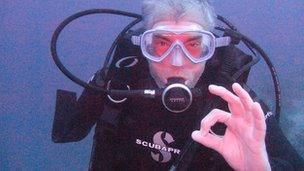
Paul Lawrenson still skis and scuba dives despite losing his arm in the Bali bombing
"Just before the explosion, I had returned from the toilet to find a very pretty Australian girl had taken my seat," he says. "She asked me if I wanted my seat back. I declined and sat on a bench nearby.
"That girl died.
"The person I sat next to on the bench, who had shuffled down by one place so I could sit down, also died."
Mr Lawrenson lost the lower part of his right arm. He will be back in Bali to mark the 10-year anniversary.
He says: "There were people in a state similar to mine who burned alive because they could not get out. So I was lucky and unlucky."
After the bombing, it took him time to get back to work as a software development engineer and he set up a website to tell of his experiences, external. "I am mobile and independent," he says. "I do not have post-traumatic disorder. I do not see a shrink. I still have a sense of humour. I have recovered to the best I can."
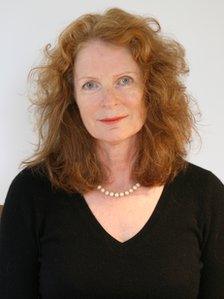
Alison Thompson says some victims were initially incorrectly identified
Coroner Alison Thompson was sitting on a beach in Australia, where she had been lecturing her fellow professionals about disaster victim identification, when she got a call about the bombing.
She agreed to fly straight to Bali, meet a pathologist sent out from London and visit the scene. She worked to identify the British victims and liaise with their families.
She says: "I remember the tiny, tiny mortuary they had. It was used to dealing with one or two bodies and there were literally hundreds. I remember the sheer number of people and it was so hot, they had to bring in ice."
"Several people were identified incorrectly by the families," she says. "It seems extraordinary, but it does happen. I don't know if it's because there is a will to find a person. But that is why we had to corroborate it with fingerprints, dental records or DNA."
The identification process took a long time in some cases, Miss Thompson says, and many families were frustrated, but it had to be done properly.
In July 2003 an inquest was held in London and Miss Thompson concluded that all the dead had been killed "in an act of terrorism".
The seeds of the October 2002 Bali bombing plot are thought to have been sown in a hotel room in Thailand 10 months earlier.
At a secret meeting, a man known as Hambali - later dubbed "South East Asia's Bin Laden" - is believed to have ordered a new strategy of hitting soft targets, such as nightclubs and bars rather than high-profile sites such as foreign embassies.
But it was not until August 2002 that the target was chosen.
Ali Imron, who was convicted of his part in the attack, said Bali had been chosen "because it was frequented by Americans and their associates".
It was supposedly part of a jihad, or holy war, to "defend the people of Afghanistan from America".
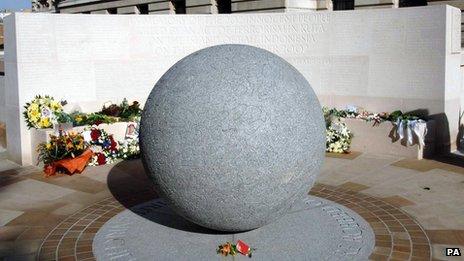
A memorial to the victims stands outside the Foreign Office in central London, with 202 doves carved into it to represent the number of people killed
Ed Waller was also killed by the blasts. He was in the same party as Polly Brooks, travelling with the Hong Kong Football Club Vandals rugby team. He worked in Hong Kong as a financial consultant.
His father, Jocelyn, from Cambridge, says it is still impossible to tell where the "front line" will be. "It could be travelling on the Tube in London or being in a nightclub in Bali. The youngest and most innocent are at risk and it's still going on," he says.
Mr Waller, whose family set up a tribute site for his son,, external and is chairman of the UK Bali Bombing Victims Group, external says the intelligence agencies may have had an inkling of what was planned in Bali but: "People didn't want to rock the boat. Saddam Hussein was the target for Tony Blair and this was a distraction."
"There was a parliamentary committee report which admitted there were failures in intelligence. Could this have been avoided?"
Ali Imron said the Bali attacks were originally planned for 11 September 2002, to mark the first anniversary of the terror attacks on the US, but had to be delayed because the plotters were not ready.
Three of the plotters were executed in Indonesia in 2008, while several others are in jail or were killed by the security forces. Hambali is currently in US custody in Guantanamo Bay.
Ten years on, Polly Brooks feels the bombings destroyed her innocence and says her life will "always have this weight on it" a "real sense of sadness". It becomes more acute at the bombings' anniversaries, on her 10th wedding anniversary, just passed.
"When I think about Annika, she never had kids, Dan, never got to have kids," she says.
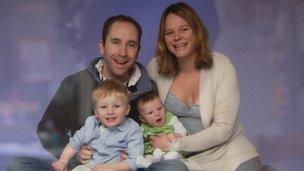
Polly has rebuilt her life, marrying Andy and having two children
A "really strong family network" helped her to recover and Polly underwent counselling as well as treatment for the burns and pain she suffers from scarring.
She set up the charity Dan's Fund for Burns, external out of a determination "to do more good than [the bombers] did evil", raising £1.5m to support burns survivors.
Polly has remarried, to Andy Brooks, and has two children. She is not heading back to Bali for the anniversary, but will visit Hong Kong, where she and Dan lived and worked.
"I have been able to rebuild my life, [which] changed forever. My character changed - on the positive side, I'm more empathetic to people who have things happen to them.
"And when I'm stressed about stuff, I think, 'Has anyone died? is anyone ill? No. It doesn't matter.' So I have good perspective.
"It still is a huge responsibility that I was the only one who was left. I was allowed to live, for whatever reason.
"So I have to live my life."
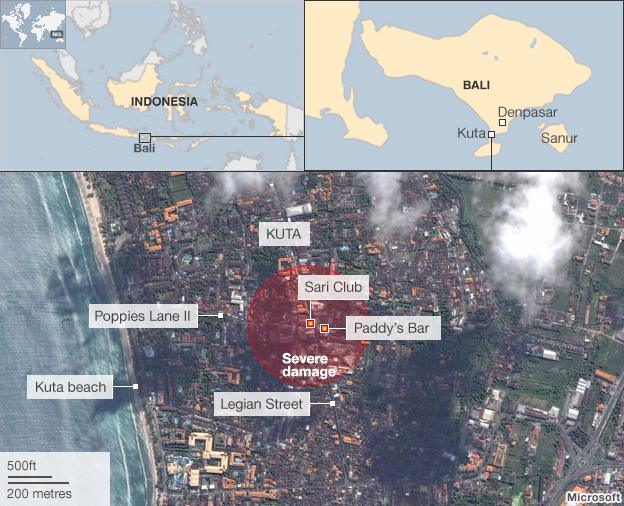
- Published8 October 2012
- Published21 June 2012